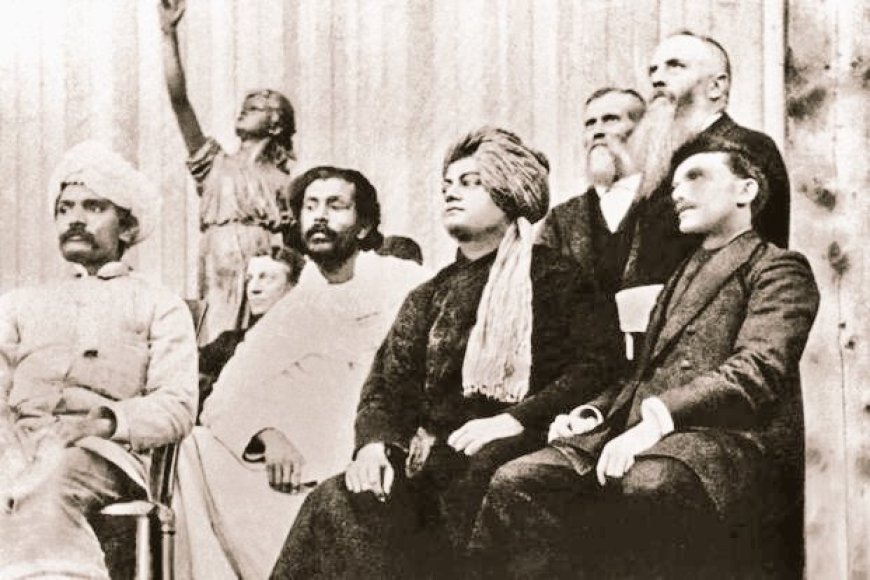Swami Vivekananda's Chicago Speech Champions Universal Religious Harmony
Swami Vivekananda’s 1893 Chicago speech highlighted universal brotherhood, tolerance, and harmony, inspiring global interfaith unity.

Introduction
On September 11, 1893, Swami Vivekananda delivered his historic speech at the World’s Parliament of Religions in Chicago, leaving the audience spellbound with his message of peace, tolerance, and universal brotherhood. The speech not only introduced Indian spirituality to the West but also emphasized the essence of harmony among all religions. Today, it continues to be remembered as a milestone that shaped India’s global identity and inspired generations worldwide.
Historical Background
The Parliament of Religions was held in Chicago as part of the World’s Columbian Exposition, where representatives of different faiths gathered to share ideas. Swami Vivekananda, representing Hinduism, initially faced hesitation and even financial struggles to reach America. However, once he began his address with the iconic words, “Sisters and Brothers of America,” he received a standing ovation that lasted for minutes. This moment became symbolic of India’s ancient wisdom being recognized globally.
What the Speech Was About
-
Vivekananda spoke of universal acceptance, rejecting religious intolerance and fanaticism.
-
He explained Hinduism’s belief in the acceptance of truth in all religions.
-
He emphasized that humanity’s goal should be unity and spiritual progress, not division.
-
He celebrated India’s spiritual heritage while showing openness to other traditions.
Reasons Behind the Speech’s Importance
-
To counter the Western misconceptions about Hinduism and India.
-
To showcase India’s ancient philosophy of tolerance and pluralism.
-
To create dialogue among global religions at a time when divisions were high.
-
To inspire Indians back home to regain pride in their culture and spirituality.
Key Points of the Speech
-
Universal Brotherhood: All religions lead to the same divine truth.
-
Condemnation of Fanaticism: Religious intolerance has caused wars and destruction.
-
Respect for Diversity: Every faith has a valuable contribution to human progress.
-
India’s Role: India represents a land of spirituality and acceptance.
Significance & Impact
-
The speech elevated India’s image on the world stage.
-
It inspired India’s freedom movement, as leaders drew motivation from his words.
-
It promoted interfaith dialogue, which remains relevant today in a world divided by conflicts.
-
September 11 is now observed as World Brotherhood Day in his honor.
Advantages and Disadvantages
Advantages
-
Promoted India’s spiritual and cultural values globally.
-
Strengthened pride and confidence among Indians.
-
Inspired global conversations on peace and harmony.
-
Became a timeless guiding principle for interfaith understanding.
Disadvantages (Challenges)
-
Though powerful, the speech couldn’t immediately erase global religious conflicts.
-
Some critics argued it was too idealistic compared to political realities.
-
Over time, its deeper philosophical essence risks being reduced to symbolism rather than practice.
Positive & Negative Aspects
Positive:
-
Sparked global recognition of Indian philosophy.
-
Unified people beyond borders, religions, and cultures.
Negative:
-
The vision of universal harmony still struggles against modern extremism and conflicts.
Final Thought & Conclusion
Swami Vivekananda’s Chicago speech remains one of the most inspiring calls for unity in diversity. At a time when the world continues to battle intolerance and division, his words still echo with relevance: “We accept all religions as true.” The speech was not just about religion but about humanity’s shared destiny of peace and harmony. It is both a reminder and a challenge—that humanity must rise above divisions to embrace universal brotherhood.

 Ellofacts
Ellofacts 





